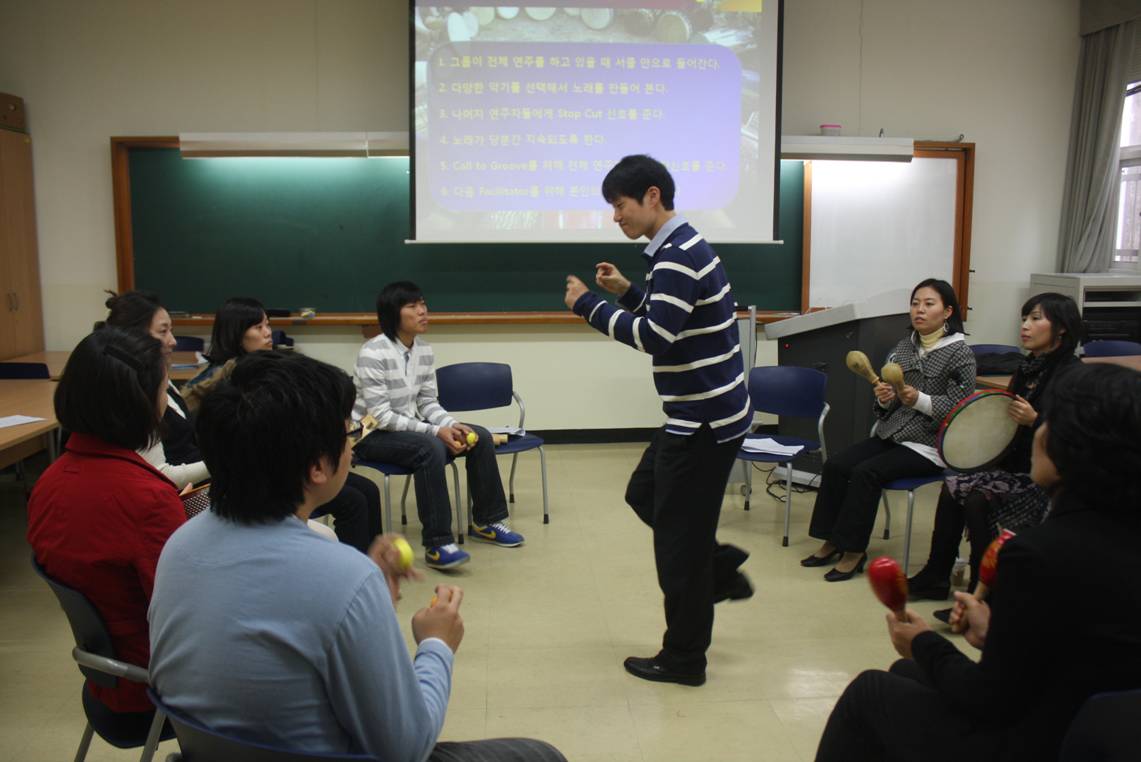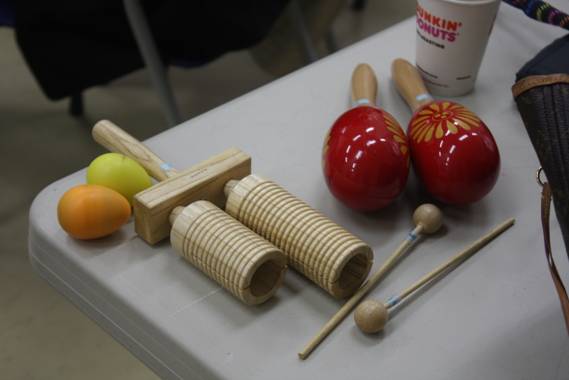Music therapist: using music for psychological health
MEDICATION IS known to be a highly effective form of therapy to patients with physical or mental disorders. Yet pills are not the only way to cure mentally ill patients. Music, which nearly everyone enjoys in their daily lives, can also be a form of therapy. The Yonsei Annals reports on a new type of specialist who treats people with music.
What is a music therapist?
A music therapist is a specialist who uses music to treat people for various medical conditions. Many people have had the experience of relieving stress and feeling better by listening to music. Music enhances the quality of life by improving both our physical and mental health.
Music therapists do not treat clients as if music were simple magic, but use a specialized method and follow a standard protocol. First, they gather information from the client ― the person who receives the therapy ― by discovering his or her characteristics through interviews and observations. Then the therapist plans a treatment that is most suitable to the client. For example, if the goal of the therapy is to enhance social interaction, they might utilize the collaborative play of instruments. Finally, the music therapist performs various musical activities that have been prescribed for the client, and evaluates whether they achieved the desired therapeutic effect.
To become a music therapist
In Korea, one should have a master's degree and finish a specialized training course to become a music therapist. A master's course consists in five semesters including an internship. In the training course, one has to learn musical skills such as playing instruments and composing songs. One also has to learn psychological and pediatric theories, which provide the basic knowledge necessary to understand the client.
After acquiring knowledge about the therapy, one should advance one's skills through continuous education. Continuous education includes direct and indirect interaction with one's clients over a long period of time, until the client is healed. Music therapists also learn how to perform research about music therapy by undertaking research on their clients.
Since music therapy is essentially a combination of multiple academic fields, a musical therapist needs to have a command of a broad range of knowledge. Not only musical techniques but also a deep understanding of the disabled, the human body, psychology, and music in general is required to be a well-rounded therapist. Since music therapists need a broad range of knowledge, they should recognize that the wisdom of human life is never ending.
Merits and hardships in music therapy
Although there might be people who do not like a certain genre of music, it is difficult to find people who do not like music. This special property of music helps overcome the resistance that a patient might have to therapy. Thus, a musical approach towards mental illness can open others' minds and hearts, maximizing the effectiveness of their treatment.
Therapists have a hard time when their clients do not respond or react in the way the therapists expect them to. They also feel frustrated when there is no change in their clients' condition. It is at this point that, more than ever, they need to have trust in the power of music. Music, a form of non-lingual communication, can provide a comfortable environment. The rhythm, structure, and sequential properties of music can be used to connect the client with the real world in a direct way. Music can be used as a form of reward for participating in social tasks and as a means of learning adaptive behaviors. Also, musical treatment can assist in achieving a substantial relaxation of mental tension when the patients breathe deeply and give their minds over to music-induced images.
A musical cure is not accomplished in a day. A long period of time is needed for clients and therapists to work together in creating harmony. Eventually, when this process is successful, it can make one's spirit ring in touch with abundant love.
* * *
Whether or not we achieve something great, we feel happy when we are helping others. The smile of the person who is receiving help gives one happiness and energy. This is one of the greatest motivations for music therapists. When a child, who once felt helpless and could not do anything, starts to sing and love himself again, the therapist has a warm feeling in his heart.
If a lot of people participate in music therapy, it will make the world a more beautiful place to live. "When music therapy was first introduced, it was mostly applied to disabled people who were mentally ill. Nowadays, music therapy is applied to all sorts of people," says Hwang Eun-young, a music therapist teaching at the Institute of Continuing Education at Yonsei Univ. Moreover, since the effects of music are neither fully applied nor understood, utilizing it for therapeutic purposes remains an adventure into an unknown land.
| <Drum Circle: a type of group music therapy>
|
| <Music therapy categorized by its characteristics> 1. Mental disorders |

▲ Students are participating in Drum Circle.


